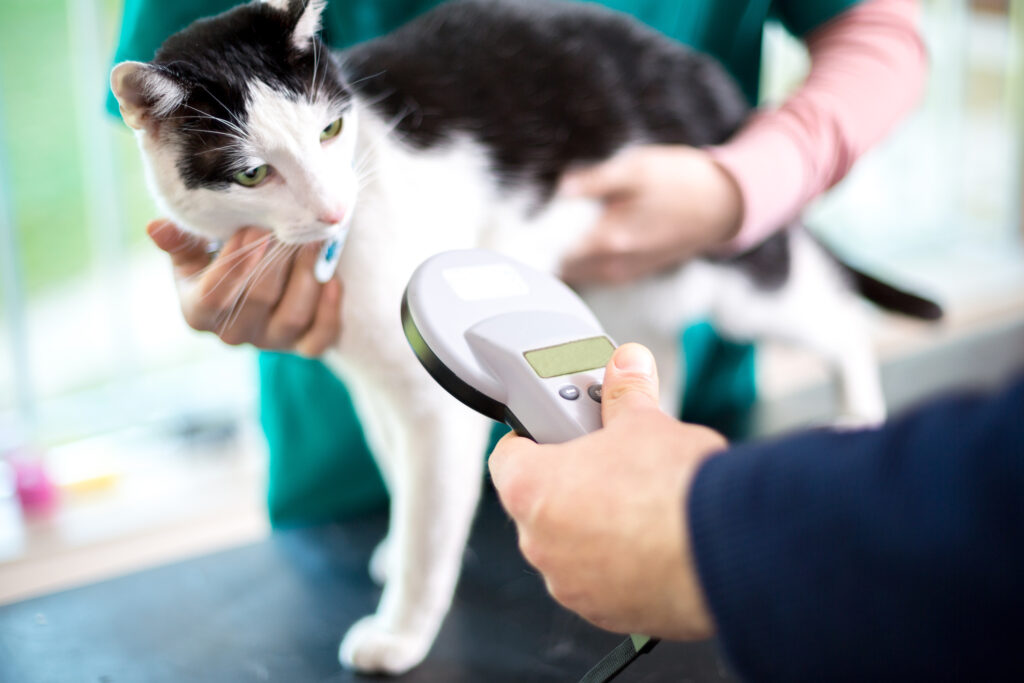As devoted companions in our lives, our pets bring us immeasurable joy, love, and companionship. They’re not just animals; they’re cherished members of our families. However, as responsible pet owners, it’s crucial to recognize the importance of ensuring their safety and security, especially when unforeseen circumstances arise. This is where pet identification plays a vital role.

National Pet ID Week, observed annually in April, serves as a timely reminder of the significance of proper pet identification. Here’s why it matters:
- Reunification in Emergencies: Accidents can happen, and pets may sometimes find themselves separated from their families. In such situations, a visible form of identification—such as a collar tag or microchip—can significantly increase the chances of a swift reunion.
- Proof of Ownership: Proper identification serves as proof of ownership in case your pet is lost or stolen. It can help prevent disputes and ensure that your beloved companion is returned to you promptly.
- Legal Requirements: In many areas, including Indiana, pet identification is a legal requirement. Licensing and registration tags are often mandatory, providing vital information about your pet’s vaccinations and ownership status.
Now, let’s explore some of the various options available for pet identification:
- Collar Tags: These traditional forms of identification are simple yet effective. Engraved with your pet’s name and your contact information, collar tags provide a visible means of identification that can quickly lead to reunification if your pet goes missing.
- Microchips: A microchip is a tiny, implantable device that contains a unique identification number linked to your contact information. When scanned by a veterinarian or animal shelter, the microchip provides vital details about your pet and facilitates their safe return home.
- Tattoos: Some pet owners opt for tattooing as a form of permanent identification. These tattoos typically consist of a unique alphanumeric code placed on the inner ear or abdomen of the animal. While less common than microchips, tattoos can still serve as a reliable form of identification.
As we observe National Pet ID Week, let’s take the opportunity to ensure that our furry friends are properly identified and protected. Whether through collar tags, microchips, or other means, investing in pet identification is an investment in their safety and well-being.
Remember, accidents can happen when we least expect them. By taking proactive measures to properly identify our pets, we can provide them with the best possible chance of a safe and swift return home.
For more information on pet identification consult with your local veterinarian. Here’s to keeping our beloved companions safe and secure, today and every day.